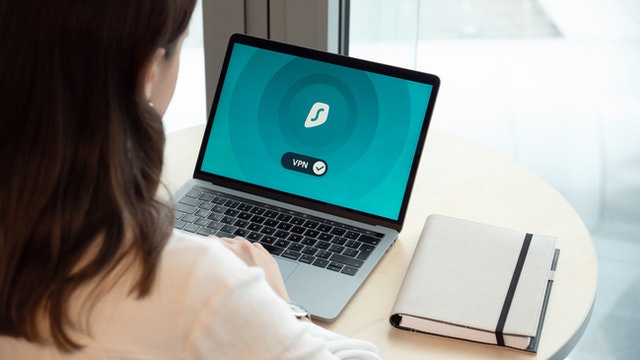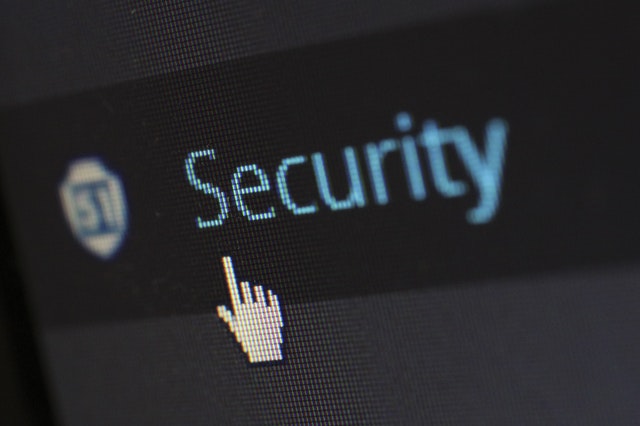Many small and medium-sized enterprises (SMEs) have made the leap to the online channel in the last year in haste, sometimes forgetting cybersecurity protocols.
Eighty-six percent of security professionals have detected an increase in cyber attacks. But consequences are not only at the level of company data, customers also demand that their data is secure, and 85% of online business users say they would not buy from a website without an SSL certificate.
Index
- What are the types of threats in cyber security to SMEs?
- Tips to prevent cyber-security threats to your SME
- Phenomena to watch out for to prevent cyber-attacks
- Conclusion
What are the types of threats in cyber security to SMEs?
Understanding and being aware of the cyber threats that surround SMEs is key to good corporate cyber security, as these dangers are constantly evolving and can have multiple faces, ranging from mobile app security threats, to phishing and social engineering attacks, to identity theft.
As well as causing damage to the company itself, around 60% of SMEs are out of business within six months of a cyber attack, because these security breaches lead to a lack of trust from their customers, who stop buying or contracting their services.
Related article: Cybersecurity For Startups (A Step-By-Step Guide)
Below we list the most common types of cyber threats so that you are aware of them and can begin to protect yourself from them:
Low awareness
When a company’s employees are aware of cyber security, it means that they understand what a threat is, where it comes from and the impact it can have on the company. Good education and awareness means they know what steps to take to prevent crime from infiltrating the business and causing further damage.
Theft of digital information
Data interception and theft of information stored on computers, servers or electronic devices, with the intention of compromising privacy and obtaining confidential information. The information stolen can be of various kinds, such as credit card or bank account numbers, licence numbers or medical records.
Phishing
This is one of the most common methods. It is a phishing attack via malicious email, which aims to gain access to the victim’s software through a malware programme that is downloaded via an attachment.
If the person receiving the malicious email opens the attachment, the malware is downloaded and will allow hackers to access sensitive and valuable information.
Distributed Denial of Service (DDoS) attacks
A distributed denial of service (DDoS) attack is a malicious attempt to make an online service unavailable to users. It sends multiple requests to the attacked web resource, with the intention of overflowing the website’s capacity, disrupting or temporarily suspending the server’s services.
Tips to prevent cybersecurity threats to your SME
Cybersecurity in companies is not only a technological problem, but also involves the management of processes and the work that employees carry out, as they are the ones who manage and use the company’s devices to work with information.
As a company, we must train our employees in cybersecurity, always bearing in mind the established security policies, regulations and procedures, supervising that good practices are complied with and carrying out awareness and sensitisation actions for employees on an ongoing basis.
We list some very useful cyber security tips for maintaining cyber security in SMEs:
Invest in cybersecurity culture.
As we have already mentioned, it is essential to raise awareness and train employees in cybersecurity, laying the foundations for the protection of both our confidential information and that of our customers and suppliers. Training sessions are essential and will ensure that employees use approved software, have secure passwords and know how to detect potential attacks and how to protect personal data.
Changes to user policy
Implementing policies that limit the ability of users to install unauthorised software on work devices, requiring employees to use multi-factor authentication. and requiring them to use trusted security software for the business all help to protect the organisation.
You may be interested in: Blockchain’s Possible Impact on Marketing
Using smart security tools
There are multiple monitoring and anti-malware tools available on the market at competitive prices that can protect our entire network. A good SME cybersecurity tool will have integrated machine learning and artificial intelligence to improve detection rates. This includes mobile device management, such as Microsoft 365 and Gravityzone Advanced Business Security.
Backing up
Back up all computers on a recurring basis, at least weekly, to protect important data and information, such as word processing documents, spreadsheets, databases or financial files.
Use a firewall
If you have a Wi-Fi network for your business, make sure it is secure, encrypted and hidden. To hide the Wi-Fi network, we must configure the wireless access point or router to not broadcast the network name, known as the Service Set Identifier (SSID) to keep us safe from potential attacks and data theft.

Phenomena to watch out for to prevent cyber-attacks
There are an increasing number of businesses operating over the internet, and the fraudulent methods used by hackers are becoming more complex, but at the same time, there is still a lack of awareness of these crimes to prevent them.
Most people think “it won’t happen to us”, but the reality is that any person or business is a potential target.
Every company, regardless of size, should educate its employees on cybersecurity, comply with certain safe practices, such as keeping software up to date, and have a solid password management and backup strategy to ensure the protection of personal data online.
If we fail to take these minimum measures, we will fall victim to our own mistakes and suffer the consequences, which will be much more costly to repair than investing in preventing attacks.
Recommended article: Cloud Computing Trends 2022 and Benefits for businesses
Keep an eye on these elements to improve the cybersecurity of our SME:
Database activity
Unusual activity in our database could be the result of both internal and external attacks. Watch for signs such as an increase in the number of data, changes made to permissions or users.
Account abuse
When restricted accounts are abused, it indicates an internal attack. Watch out for access to confidential information when it is not needed.
Unusual user access
When there are suspicious changes in user access, it is indicative of an external hacker trying to gain access to our business network. We should track accounts being accessed, remote access attempts, and tracking of failed login attempts.
File changes
Another sign of a data attack is to detect configuration changes in files. This includes the appearance of new files, deletions and unwarranted modifications.
Internet behaviour
We must be alert to the operation of the company’s network and detect abnormal changes in network performance or protocol violations as early as possible, as these can be critical signs of an attack.
Changes detected by employees
Employees may detect suspicious activity earlier than the company itself, as they may receive strange antivirus notifications, see excessive pop-ups, unauthorised toolbars, or notice that the internet is slowing down. These signs do not necessarily mean a cyber-attack, but they are events that need to be analysed.
Conclusion
When you want to start a digital transformation process for your company, considering corporate cyber security as an element to invest in is crucial. Often this kind of investment may seem superfluous, but protecting your company’s and your customers’ data and information is necessary to avoid incurring large costs in case of vulnerability. In addition, ensuring absolute security also has great benefits for the perception of your SME by your customers.
If you are new to the industry, talk to our cyber security experts. They will be able to advise you on the areas of your SME that need cyber-defense work.













